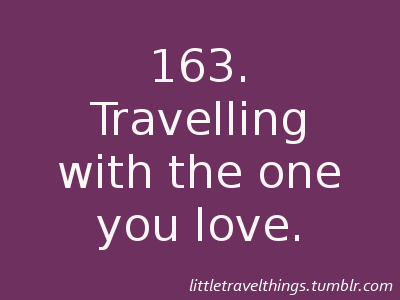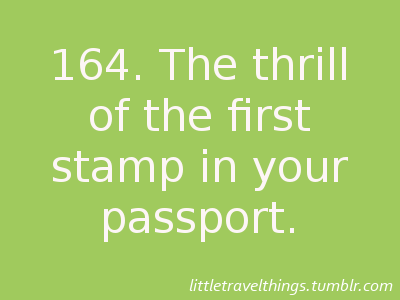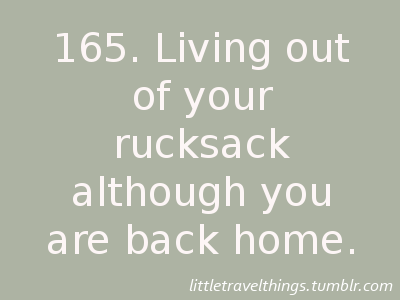Unit 10. BUSINESS TRIPS. TRAVELLING
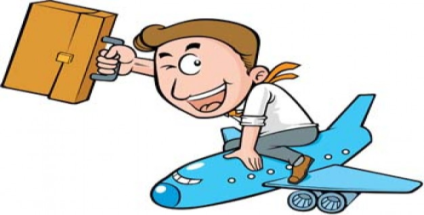
10.1. Listening Development
Assignment 1. Listen to the following conversation and jot down the advice given to travellers and vocabulary units being defined.
Assignment 2. Listen to the BBC news of an air traffic incident and report the following details.
- Where did it happen?
- What kind of airport is it?
- When did it happen?
- What happened?
- What is the child’s father’s job?
- What is his name?
- Did the incident happen during take-offs or landings?
- Was this the only occasion when it happened?
- What was the reaction of the pilots?
- How did the authorities react?
10.2. Vocabulary Enrichment
Assignment 1. Express the same.
- luggage
- to be scheduled
- expensive
- to book
- to clear Immigration
- to be seasick
- to go by rail
- a home-lover
- a journey
- beforehand
Assignment 2. Complete the second sentence so that it is as similar in meaning as possible to the first. Use the word given. Do not change it.
1. I think the excursions were the best thing about language school. | GOING |
2. If you want a good room, you should reserve it in advance. | RESERVATION |
3. Why don’t you fly to Paris instead? | FLIGHT |
4. The train from Liverpool arrives at eleven o’clock. | GET |
5. I’d like to see the sights before we find somewhere to stay. | SIGHTSEEING |
Assignment 3. Give the opposite of:
- to get on a bus -
- a window seat -
- arrival -
- to land -
- safe -
- exit -
- a smoker -
- to check in -
- a one-way ticket -
- to travel for pleasure -
Assignment 4. Complete the sentences below with a preposition or a postposition where necessary.
- A holiday a luxury liner is a cruise holiday.
- If you arrive Minsk after 11 p.m., you will need to call the hotel for assistance.
- Our liner will call several European ports.
- You get your boarding pass the check in-desk.
- If you are sitting in a plane that hasn’t taken yet, you can’t get .
- If you have a lot of luggage, you can put it a trolley.
- When will stewardesses bring meals and drinks?
- My pink dream is to go a tour the world.
- Would you like to go a drive or do you prefer going foot?
- Soon we’ll be board a ship heading America.
Assignment 5. Fill the gaps with the words below. You may need to change the form of the word.
carry-on connections stopover airport itinerary
ticket long-haul clearing checks suits
duty-free aisle fasten books no smoking
Giorgio Ronchi is actively involved in putting together his own ... plans.
“No one else can really do it, because only I know all the right ...,” he explains. For example, he plans only 15 minutes to clear ... in Atlanta, but counts on 90 minutes in New York. Ronchi ... with three lightweight ... and three ... of clothes. He never ... baggage, but limits himself to .... He never buys ... goods, nor does he shop anywhere else. He ... only ... seats near the front of the aircraft in the ... section. Before ... his seat belt, he removes his jacket, empties all his pockets and stows it away. Ronchi then settles down to work. He never watches the movie or sleeps, unless he is on a ... flight.
After ... and ...customs, Ronchi often has a business meeting at one of the growing number of airport business centres, especially in Europe, where ... don’t add to the price of a .... Faxes, telexes and other messages may be waiting for him at the .... Also waiting for him will be a detailed schedule and ... for that evening and the next day, sent by his secretary in Milan.
Assignment 6. Guess the word.
- : A holiday where the tour-operator arranges both the flight and accommodation.
- : People manning a ship, aircraft, train, etc.
- : Postpone; defer.
- : A price asked for services or goods.
- : He travels for his vacation.
- : Numbered place of access to aircraft at an airport.
- : A plan of a journey, which includes the route, places to visit, and so on.
- : Passage between rows of pews, seats, etc.
- : Break in a journey, esp. overnight.
- : Framework, usu. with rails, bars, etc., for holding things.
Assignment 7. Fill in the gaps with the phrasal verbs below choosing the proper tense form.
- set off
- check into some place
- get back (to / from a place)
- get around
- check out of some place
- look forward to something
- deal with something
- put up with something
- bring something back (from a place)
- pick somebody up
- see somebody off
1. Start a journey:
They at 5 a.m
2. Return from a place with something you bought there:
We this carpet from Turkey
3. Go to the reception desk to say you have arrived and to get the key to your room:
Have you the hotel yet?
4. Travel to different places in the same town / city / area:
What’s the cheapest way to ?
5. Go to the reception desk to pay your bill before you leave:
We the hotel early this morning.
6. Accept the situation that you donґt like because you canґt change it:
I don’t know how you all this noise.
7. Feel happy and excited about something that is going to happen:
I’m really my holiday.
8. Do something in order to solve a problem or achieve something:
I have to a lot of difficult customers as part of my job
9. Go to the place where somebody is leaving from ( for example, an airport or a station) to say goodbye to them:
My parents came me at the airport.
10. Go to a place where somebody is waiting and take them where they want to go:
Can you me from the station?
11. Return to a place after you have been somewhere else:
When did you get back from Brazil?
Assignment 8. Fill in the gaps with phrasal verbs putting them in a correct verb form (some verbs and postpositions are used more than once).
| break drop get hold pick slow speed take turn | back down in off on to up |
John and David’s flight home from Amsterdam was at eight in the morning. John’s friend Pieter them at their hostel in his car. They had agreed to meet at half past five but Pieter arrived almost half an hour late – that, however, was just the beginning of their problems.
On the way from the hostel to the airport, a car in the middle of a busy intersection, causing a traffic jam. Then, David realized that he had left his mobile phone in the hostel, but it was too late for them to .
John and David didn’t know it, but Pieter was a horrible driver. When they the main highway, he was driving so slowly that John screamed at him, telling him to . He then went so fast that David begged him to .
When they arrived at the airport, Pieter them at the terminal, and they , passed the security controls without being and the plane. Seconds later, the plane .
Eight hours later, they landed in New York, but they couldn’t the plane because there was a problem on the runway. Finally, forty-five minutes after landing, they got off.
Assignment 9. Translate into English.
On the way back our car (сломалась) and we had to (голосовать, чтобы словить) a taxi.
Even though we were late I asked the driver to (ехать чуть помедленнее), not to (прибавить скорость) as we were going too fast.
I am (с нетерпением жду) when I can (уехать подальше отсюда) and having a long-deserved rest at last.
If you decide to (прервать свое путешествие) and stay in London a bit longer, will you ask one of your relatives there to (разместить вас на ночлег)?
My brother is going to (проводить меня) tomorrow and when I (вернусь) – to (подвезти) from the airport and (высадить) right at your house.
We should have (приземлились) twenty minutes ago, why are we (задерживаемся)?
When Jane (кончался бензин) she was just (направлялась к) the filling station, luckily she (случайно встретила) her old friend who helped her out.
We really had not enough time to (осмотреть) the Portrait Gallery because we had to turn back so we could go home and get the tickets we had forgotten.
Assignment 10. Match the sentences with the idiomatic expressions.
red-eye flight
A.
- OK! We've got all we need, so let's get ...!
- Sarah's new job involves so much travelling that she lives ... most of the time.
- A number of car accidents today are a result of ....
- Mary was knackered after her ....
- The hotel is difficult to find, it is really ....
- Scott never stays long anywhere. He's got ...!
in high gear
B.
- It was impossible to find a taxi after the party so it was ... for us!
- A ... accident deserves serious punishment.
- It's getting late and we've got a long way to go. Let's ....
- If someone is ..., they are feverishly on the fast track.
- She's got ....
- It's very dangerous .... No wonder he was stopped by the police.
sailed through it
C.
- The English test was no problem for Tom. He ...!
- I can't stand ... like my mother-in-law!
- It's hard to believe that a small ... can cause a major traffic jam!
- If you intend to go trekking, you'd better ....
- Don't worry. I'll ... to your home from the station.
- I discovered he had charged me double the normal fee. He really ...!
Assignment 11. Translate into English. Make use of the active vocabulary.
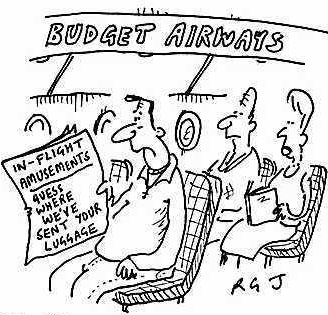
10.3. Reading Improvement
Assignment 1. Three sentences in the next article have been removed. Choose from the sentences the one which fits each gap.
PASSENGERS PANIC OVER FALSE CRASH ALARM
The announcement was played as the plane was passing over the Atlantic Ocean on its way to London, Reported CNN.
British Airways is apologizing to passengers of a trans-Atlantic flight after a recorded message announcing the plane was about to make an emergency landing in the ocean was mistakenly played over the intercom. The incident, which happened on a flight from Miami to London late Friday, caused panic in the cabin.
Passengers told British newspapers that about three hours into the journey, a recorded voice suddenly gave a frightening announcement. ... In fact, the flight was proceeding normally, but the frightening message led passengers to assume the worst.
... passenger Duncan Farquharson told The Telegraph.
"About 30 seconds later, one of the cabin crew told us to ignore the announcement. ... Imagining yourself plunging towards a cold, watery grave in the middle of the Atlantic is a pretty horrific thought, but they seemed very blasé about it."
British Airways isn't saying whether a technical glitch or human error caused the recording to play. "The cabin crew canceled the announcement immediately and reassured customers that the flight was operating normally," the airline said in a statement. ...
The plane landed safely at its destination.
Assignment 2. You are going to read a newspaper article about a special course for people who are afraid of flying. Eight sentences have been removed from the article. Choose from the sentences the one which fits each gap. There is one extra sentence which you do not need to use. There is an example at the beginning.
Others disliked the movement of the plane when it is hit by air currents. However, stress and tension can be brought on simply by shallow breathing: we were therefore encouraged always to take deep, full breaths. We were then ready to analyse our problems, which were discussed and critically examined.
ALL ABOARD THE FLIGHT FROM FEAR
Stuart Rising was terrified of flying. And he was one of the relaxed ones on a course aimed at curing passengers of air-travel phobia.
About 200 of us assembled in the huge lecture room of the luxury Heathrow airport hotel. Young, middle-aged and old: what we all had in common was a fear of flying. And we were about to take part in a fear-of-flying course: a seminar conducted by two airline pilots and a psychologist from a leading London hospital.
We sat like attentive schoolchildren, focused on our three teachers. First, we were asked to identify our specific fears and problems. Some did not like take-off and landing. ... Some shared my intense dislike of being trapped in the seemingly small space of an aircraft.
Our first teacher asked: 'Does anyone dislike lifts or travelling on the Underground?' Lots of hands shot up with mine. I felt better already. One person had been struck by terror on an Underground train. ... I was in good company.
Our tutor encouraged us to identify our particular worries and fears connected with air travel. We formed teams and got to know each other. ... For example, the pilots explained that on takeoff there is always a lot of noise as the engines build up power, but nothing is wrong.
The pilots discussed other common fears and worries. People like me, who may feel breathless in enclosed spaces, were reassured that the air in the aircraft is continually being changed. There is always enough air. ... The principles of flight were discussed and the pilots explained that air travel is, in fact, one of the safest forms of modern transport.
The time had come. We were told to take all the positive action needed. We should be courageous and resolute. Now, if we followed through, we would be able to face our fear of flying and then overcome it.
We were taken to a 747 aircraft. We climbed aboard. I sat beside Betty, the lady who had panicked in the lift. Nervously gripping her armrests, Betty was now minus her smile. The young woman across the aisle from me was in tears. She was scared, but she was on the plane. The engines roared into life; the plane moved forward. ... 'Fasten your seatbelts, please,' a silky female voice urged us. How could we resist? We did as we were told and kept our cool. Or tried to. Suddenly, we had taken off. We were airborne. We flew from Heathrow airport to the south coast. Dungeness Power Station was clearly visible from the window. On the return to Heathrow, we took it in turn to visit the flight deck. ...
After we had got off the plane, we burst into a display of emotion, triumphantly laughing and cheering while exchanging hugs and claps on the back. ... We had all faced a serious problem and taken a giant step toward overcoming it. We felt sad for the few who had refused to board the aircraft. The chances are that they will probably never get on any plane. Me? I'll soon be flying to America.
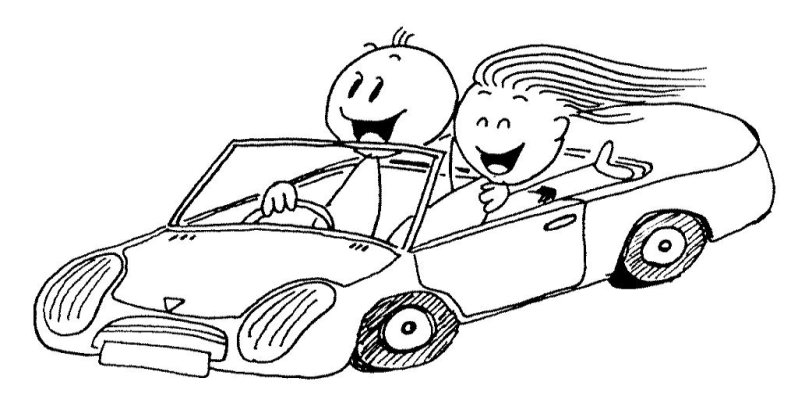
Assignment 3. You are going to read a selection of letters from a motoring magazine. For questions 1-15, choose from the people (A-E). The people may be chosen more than once.
Your Letters: This month we feature your early driving experiences:
|
|
A. I'd been taking lessons for a year before I passed my driving test at the age of eighteen, but my dad never gave me any help. Even after I'd passed he never let me use the car. So I used to take my dad's keys before leaving the apartment block where we lived and would run round to the car park at the back where my father left the car at night. He hardly ever used the car after getting in from work. I used to go and see my girlfriend or just drive around and then come back and leave the car in exactly the same place. One night though, I got back at around ten thirty only to find there were no parking spaces left. I suppose because I went in and told my dad the truth straight away he was quite good about it. Although he did stop my allowance for four weeks. (Terry) |
|
|
B. My most unfortunate driving experience happened ages ago, before I'd actually passed my driving test. My girlfriend's father used to let her borrow his car whenever we were going to the cinema or something. Anyway, I'd been thinking about learning to drive and I persuaded her to let me have a go. We took the car down to the beach on the sand where no one could see us and she let me take the wheel. We were having such fun that we didn't notice the tide was coming in until the car was actually swimming in the water. We had to leave the car where it was and catch the bus back to tell her dad. By the time the three of us returned, the car was almost covered in water. Needless to say, her father wasn't too pleased. The funny thing is her dad ended up selling me the car after I passed my test. (Carl) |
|
|
C. I was teaching my mum to drive and we were coming down a rather narrow road which had cars parked on both sides. Suddenly, from nowhere there was a young man on a bike coming towards us. Mum slammed the brakes on but he crashed into us, landed on the car and then rolled off. My mother and I both jumped out of the car to see if he was all right. Fortunately, he stood up and said he was OK, just a little shaken. My mum offered to give him some money for the repair of the bike, and then an old lady came along. When she saw what had happened, she began shouting at my mother, saying she must have been driving too fast and that it was a bad example to set her young daughter. Poor old mum didn't say a word and I had to explain that she was still learning to drive. (Sarah) |
|
|
D. My advice about learning to drive would be to have proper lessons from a qualified instructor and never to let a friend or family member try to teach you. It's a guaranteed way to spoil a good relationship. Every Sunday, when the traffic was quieter, my father would pick me up and take me for a drive along the streets of our hometown and give me a lecture on how to drive, explaining everything he was doing and why. Eventually it was my turn to have a go. My dad was so nervous that he panicked before I'd even started up the engine. He used to shout at the slightest mistake, and when the lesson was finally over he'd come home and have a large glass of whisky to calm down. (Karen) |
|
|
E. I didn't start learning to drive until I was twenty one. I'd spent lots of money on lessons but I was a terrible driver, I must admit. The first time I took my driving test nobody expected me to pass. But after failing another four times the pressure was really on. I took my test for a sixth time and failed yet again, but I was too embarrassed to admit it to my family, so I just pretended that I'd passed after all. My family were delighted and my father went out and bought me a car the next day. I didn't know what to do so I just got in and drove. I continued to drive – illegally – for three months. Fortunately I was never stopped by the police and the next time I took my driving test I passed. (Mike) |
- Had a parent who was accused of driving dangerously?
- Bought a car?
- Drove his girlfriend’s dad’s car?
- Drove alone without a license?
- Had to defend one of their parents?
- Drove the family car without permission?
- Was teaching someone to drive?
- Paid for driving lessons?
- Had no driving instruction from their father?
- Was punished for their actions?
- Was given driving lessons by a member of their family?
- Was considering taking driving lessons?
- Advises against being taught to drive by a friend or family member?
- Was given a treat for passing their test?
- Used to make their father nervous?
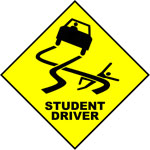
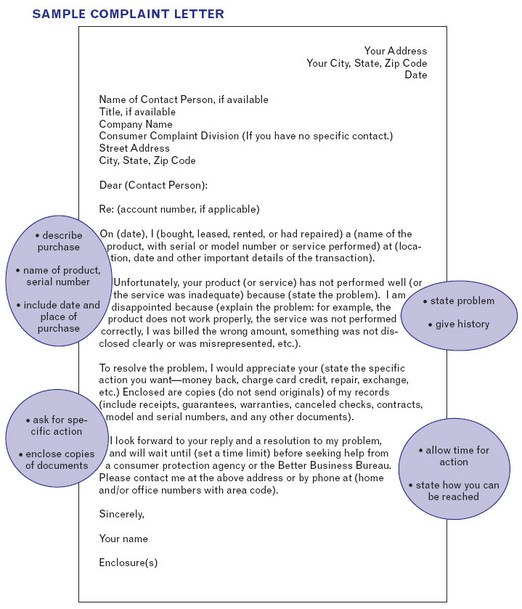
10.4. Writing Enhancement
If you're unhappy about the service you have received when travelling by train, you can make a complaint. Find out who to contact, what your complaint should say and what to do if you are not happy with the response. You can use a template letter given below.
MAKING A COMPLAINT ABOUT RAIL SERVICES
Who to complain to
Contact the train company concerned for complaints about tickets and train travel, including:
- being sold the wrong ticket for your journey
- delayed or cancelled trains
- the availability of information at stations or on trains
- overcrowding on a train service
- a penalty fare you have received and want to appeal
- the conduct of staff on the train or at a station
- accessing the train or station and any help you did or didn’t receive
- late notification of changes to a rail service because of engineering works
How to make a complaint
It's best to make a complaint at the time of the problem by contacting a member of staff at the station or on the train. If you can't complain at the time, you should make a complaint in writing within 28 days of the problem.
What to say in your complaint
Your letter should give the reason for your complaint and a description of what happened. Include as much information as possible, like:
- the date and time of your journey and which stations you used
- how many people travelled with you
- anything you have already done to resolve the problem
- an explanation of the action you would like the company to take
If your complaint is about information given by a customer service helpline or the National Rail Enquiry Service, include:
- the date and time of your telephone call
- the full number of the phone you called them from
Along with the letter, you should send any:
- original tickets
- receipts, or a proof of purchase or reference number
Take a copy of everything you send and ask the Post Office for proof that the letter has been received. If you don't get a reply within ten working days, call the organisation involved to check they received your letter.
TEMPLATE LETTER
[Your full name]
[Your full postal address]
[Your telephone number(s)]
[Your e-mail address]
[The manager’s name / The Manager]
[Train / service operator name]
[Train / service operator address]
[Train / service operator postcode]
[17 ноября 2015]
Dear [Manager’s name or Sir / Madam]
Delay complaint
I was travelling from ________ to _________ on [date] at [time].
The train was delayed at [station name / before it reached station / on the way to place] and the overall delay to my journey was ___ hour(s) ___ minutes.
Staff said the delay was due to: _______________________________
The delay had the following consequences on my journey / day / holiday:_______________________________________________________
There are other aspects to my complaint which on top of the delay made this journey unacceptable. These are: (list the faults, for example)
1. Overcrowding
2. No heating
I would like to be compensated for this poor level of service. I will / will not be able to use travel vouchers in the next twelve months.
Please respond to my complaint within seven working days.
Yours sincerely
[Your signature]
[Yout name here]
Travel tickets enclosed.
10.5. Speaking Reinforcement
Assignment 1. Get ready to act out a conversation as passengers aboard the plane. One of you is an experienced traveller, the other one flies for the first time. Be prepared to swap your parts. Make sure you use the active vocabulary.
Assignment 2. Get ready to take interviews or to act as a business traveller at the airport with a partner in turn. The interview can follow the following lines.
INTERVIEWING BUSINESS TRAVELLERS
Good morning Sir. I'd like to ask you a few questions if I may.
Well, I'm waiting to catch my flight so I guess I can answer a few questions.
Thank you Sir. First of all, how often do you travel?
I travel about twice a month.
Where are you flying to on this trip?
I'm flying to Austin, Texas.
… and where did you fly on your last trip?
I flew to Portland, Oregon. I've already been there three times!
Really! Do you enjoy travelling for business?
Yes, although I prefer staying in the office.
What do you like most about travelling?
I like visiting new cities and trying out new food.
Is there anywhere you would like to visit that you haven't visited yet?
Yes, I'd like to go to Hawaii! I love going to the beach!
Thank you very much for your time today.
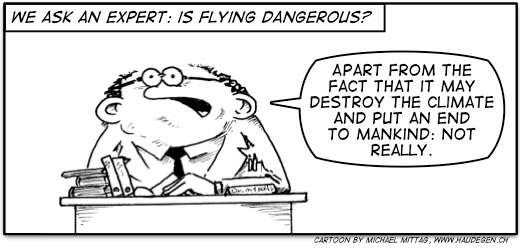
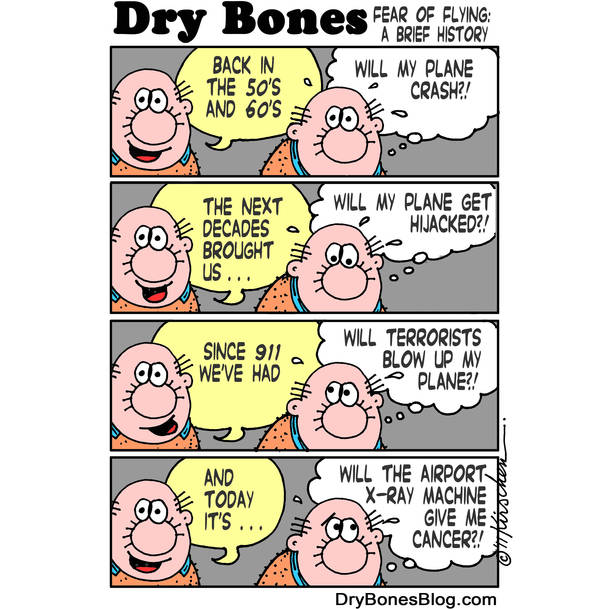
Assignment 3. Get ready to discuss this question in small groups in class:
What are the three best and the three worst things that can happen to you when you’re travelling?
